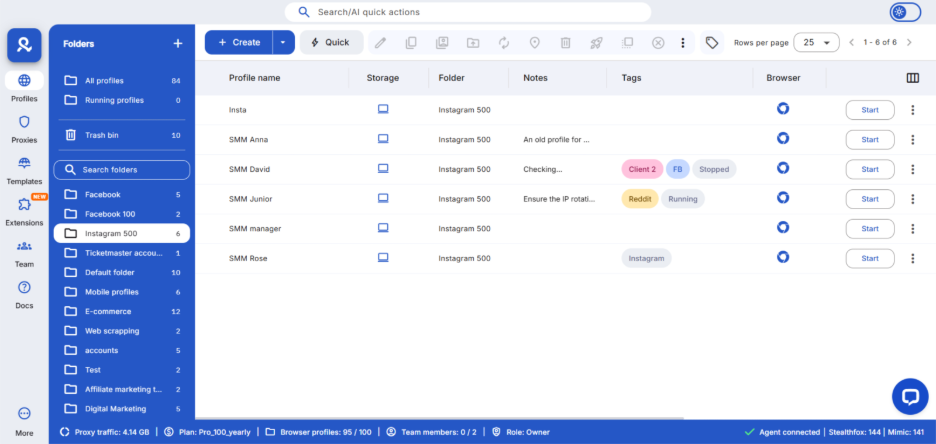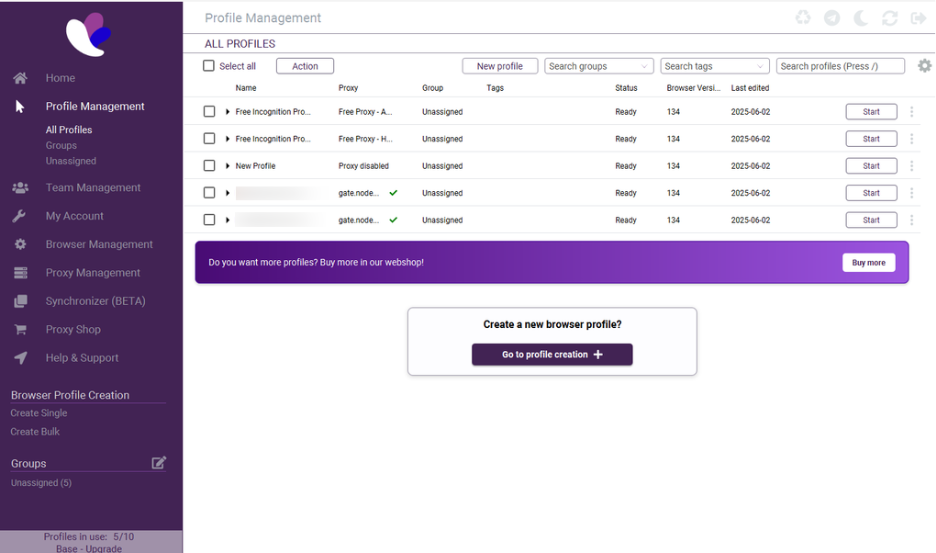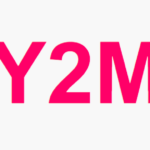Platforms track you through browser fingerprinting – matching up dozens of data points to link your accounts. When they spot the pattern, bans follow. That’s where antidetect browsers come in, giving each account its own digital identity.
Running multiple accounts for e-commerce, social media marketing, or affiliate work? Detection is the one thing that can kill your entire operation before it even gets going.
This review breaks down Multilogin vs Incogniton – two popular antidetect browsers. We’ll walk through how they compare, so you can figure out which one works for managing multiple accounts without stress.
How antidetect browsers work
Antidetect browsers control the digital fingerprint your browser sends to websites. This fingerprint includes data points like your operating system, installed fonts, screen resolution, graphics card rendering (WebGL, Canvas), and browser settings – plugins, language, timezone, and more.
Here’s what happens: the browser creates a separate profile for each account and gives it a different fingerprint. Each profile stays distinct, so websites see them as different users. This lets you manage multiple accounts without them getting linked or flagged.
The idea is straightforward – make each profile look like a different person on a different device. When done right, platforms can’t connect your accounts together.
Multilogin vs Incogniton: Overview
Multilogin and Incogniton are both antidetect browsers that help you manage multiple accounts without getting flagged or banned.
Multilogin makes things pretty straightforward from the start. It’s an all-in-one solution that bundles built-in proxy traffic, automation tools, and solid account protection into one package. Everything you need is right there.
Incogniton takes a more bare-bones approach. You get the basic multi-account management features, but you’ll need to handle proxies and other technical setup yourself – it’s not as plug-and-play. Let’s compare Multilogin and Incogniton in detail to see which is best for your business.
Feature-by-feature comparison: Multilogin vs Incogniton
Both tools do the job, but they work quite differently. Let’s see how they actually stack up.
1. Multilogin vs Incogniton: User interface (UI and ease of use)
When you’re just starting out, you need an interface that doesn’t make things harder than they should be. The interface shouldn’t add extra frustration to your workflow.
- Multilogin: The recent Multilogin X update brought a complete redesign that’s all about getting things done faster. The interface feels cleaner and runs smoother. Features like the live “Running Profiles” dashboard and drag-and-drop organization are right there when you need them. New to antidetect browsers? Multilogin X won’t bury you in settings – it keeps complex operations straightforward.

- Incogniton: Incogniton takes a no-nonsense approach with a simple interface. Finding what you need doesn’t require digging through confusing menus. The core profile management tools are easy to access, and there’s not much of a learning curve. It’s a solid pick if you want something you can figure out quickly.

2. Proxy integration: All-in-one simplicity vs. DIY setup
Proxy handling is often the biggest pain point for beginners – and it’s critical since proxies hide your real IP address.
- Multilogin: Every paid plan includes built‑in residential proxy traffic — access to 30 million IP addresses across 150 countries. You don’t need to find a proxy provider or configure anything — it’s integrated and works out of the box. This matters because proxy issues are the #1 reason beginners get flagged.

- Incogniton does not provide built-in proxies. While it supports HTTP, HTTPS, and SOCKS5 proxies, you still need to find a proxy provider, pay for it separately, and configure it yourself. This means managing two services instead of one, which adds complexity and extra costs.
3. Antidetect protection and reliability
The core value of these tools is their ability to keep your accounts safe from detection.
- Multilogin: Multilogin has been around since 2015, which matters more than you’d think. Their antidetect engine gets tested daily across 50+ major platforms – we’re talking constant updates to stay ahead of new tracking methods. This kind of testing means your profiles hold up against sophisticated detection systems, which is critical if you’re running a real business.
- Incogniton: Incogniton uses its own fingerprinting tech and works well for most use cases. It passes standard detection checks without issues. That said, Multilogin’s track record and daily testing give you more assurance if you’re dealing with platforms that have tighter security.
4. Automation & Scaling
You might start managing accounts manually, but as you grow, automation becomes necessary.
Multilogin: Multilogin offers full API access and works with automation tools like Selenium, Puppeteer, Playwright, and Postman. What sets it apart are the AI-powered Quick Actions – these let you automate simple tasks with just a few clicks, no coding required. For beginners, this makes the jump to automation way less intimidating.
Incogniton: Incogniton supports the standard automation frameworks (Selenium, Puppeteer, Playwright). It gets the job done, but you won’t find beginner-friendly features like Quick Actions. If you want to automate, you’ll need to set it up yourself or have some technical knowledge.
5. Support and customer success
When things go wrong, quick and reliable support is essential.
- Multilogin: Multilogin provides 24/7 expert support in five languages. This level of dedicated assistance is especially valuable for beginners navigating multi‑account management, ensuring problems are resolved quickly and operations stay uninterrupted.
- Incogniton: Incogniton provides email and Telegram‑based support during office hours (CET). They do not offer 24/7 multilingual live support, which can be a consideration for users operating across multiple time zones.
6. Browser flexibility and platform support
Running multiple accounts often requires different environments.
Multilogin: Supports Windows, MacOS, Linux, multiple browser engines (Chrome, Firefox), and mobile emulation for Android.
Incogniton: Focuses on Chromium-based profiles and supports Windows, MacOS, with limited Linux support. It offers local and cloud storage, but no mobile emulation and no Firefox support.
Verdict: Multilogin provides broader browser flexibility and mobile browser emulation.
Multilogin vs Incogniton: Counting costs
The true cost of an antidetect browser must include the price of the necessary proxy service.
When comparing the starting paid tiers, Multilogin’s all-in-one value becomes clear.
| Feature | Incogniton (Starting paid plan) | Multilogin (Starting paid plan) |
| Profiles | 10 Profiles | 10 Profiles |
| Price (Monthly) | ~$19.99/month | €9/month (or €5.85/month annual) |
| Proxy traffic | Not included (Must buy separately) | Built-in proxy traffic Included |
| Team seats | Limited | 0 (Team seats available on higher plans) |
Incogniton’s starting price is higher and does not include proxies. For a beginner, adding the cost of a reliable residential proxy service makes Incogniton significantly more expensive than Multilogin’s Pro 10 plan, which starts from €5.85/month (annual billing) and includes everything you need to start.
Verdict: Multilogin provides clear and affordable pricing with an all-in-one starting point that eliminates hidden costs and technical complexity, making it the superior choice for beginners focused on growing their business.
Final verdict
The choice between Multilogin and Incogniton comes down to how you want to work.
Multilogin is the better fit if you want reliability and simplicity without the headaches. The all-in-one model bundles proven antidetect technology with integrated proxy traffic and 24/7 support. You get predictable costs and a stable foundation for scaling your multi-account operation – no need to juggle multiple services or troubleshoot proxy issues on your own.
Incogniton works if you want a free tier and don’t mind managing your own proxy setup. You’ll need to be comfortable with the extra complexity and variable costs that come with sourcing proxies separately.










Leave a Reply